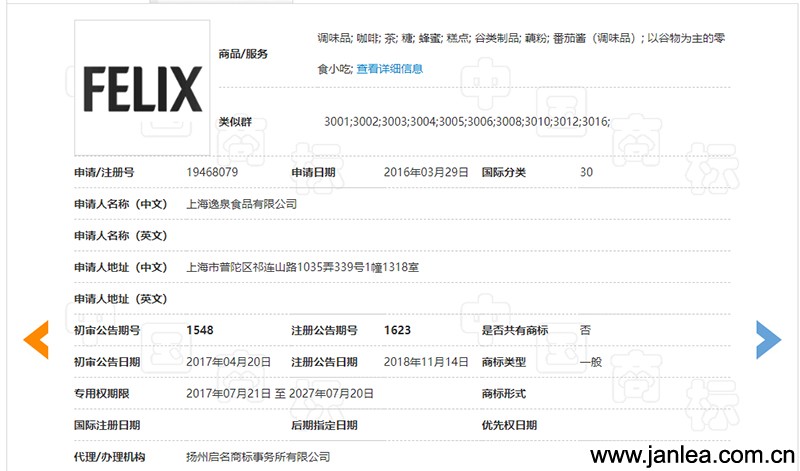


On March 29, 2022, the China National Intellectual Property Administration (CNIPA) issued the "Notice of the CNIPA on Continuing to Severely Crack Down on Malicious Trademark Registration", which summarized the achievements achieved by the national intellectual property system in regularizing the crackdown on malicious trademark hoarding. Moreover, it is also clear that the malicious trademark hoarding and trademark squatting behaviors highlighted by "trademark hoarding" and "brand-name parading" will be further strengthened. In this regard, it is clear that the typical illegal behaviors disturbing the order of trademark registration will be further cracked down on, including: The act of copying, imitating and copying a large number of trademarks or other commercial signs with certain popularity or strong significance of multiple subjects is also clear to "continue to improve the relevant examination standards, operating procedures and procedural norms, to prevent and regulate the malicious registration of trademarks to the greatest extent within the discretion space granted by law."
As can be seen from the above, the CNIPA is very determined to eliminate the evil trend of "malicious trademark registration behavior". However, as the saying goes, there are policies above and countermeasures below, and the implementers of the malicious trademark registration behavior are also taking more hidden ways to avoid the attack of the State Knowledge Office. Therefore, in the process of handling the administrative cases of trademark invalidation, as the trademark attorney, according to the facts of the case, multiple perspectives should be made to analyze whether the disputed trademark owner has "malicious registration behavior" as stipulated in the Article 44-1 of the Trademark Law. Here, the author will take a case as an example to share relevant experience.
ORKLA FOODS SVERIGE AB Sweden approved the use of Class 30 "condiments" by Shanghai Yiquan Food Co., LTD. Coffee; Tea; Lotus root powder; Trademark No. 19468079 "FELIX" (hereinafter referred to as the "Disputed trademark") on ketchup (condiment) commodity filed a request for invalidation with the State Intellectual Property Office, and the State Intellectual Property Office made an invalidation Request decision of Shang Ping Zi [2019] No. 0000305845, which affirmed that the disputed trademark should be maintained.
ORKLA FOODS SVERIGE AB Sweden refused to accept the ruling and filed an administrative lawsuit with Beijing Intellectual Property Court, Case No. (2020) Jing 73 Xing Chu No.15167, Beijing Intellectual Property Court made a judgment of first instance: "In addition to the trademark in dispute in this case, the applicant of the trademark in dispute has also registered 54 trademarks such as' 努培NUPPI (Chinese characters in Pinyin is Nu Pei) ', 'BORAS', '布罗斯(Chinese characters in Pinyin is BU LUO SI)', '布罗斯 BORAS' (Chinese characters in Pinyin is BU LUO SI), 'ROBORAVE and design' and 'MOLLERS沐乐思' (Chinese characters in Pinyin is Mu Le Si). Most of them are imitators of famous foreign place names or trademarks, and the product categories are relatively wide. Considering that its sole shareholder is the same as the controlling shareholder of Yangzhou Fengchuang Import and Export Co., LTD., Yangzhou Feng Chuang Import and Export Co., Ltd. has also applied for the registration of a large number of trademarks that imitate famous brands and names, such as "亚洲杯(Chinese characters in pinyin is Ya Zhou Bei)", "NORRLANDS GULD", "FIDEL CSATRO", "FKC", "PISTIONHEAD and design" , "Leafree" and "Scandic". The foregoing behavior has the malicious intention of copying, copying and imitating others' trademarks, and goes beyond the normal production and operation needs. If not stopped, it will disturb the order of trademark registration, damage public interests, and improperly occupy public resources, which has violated the provisions of the Article 44-1 of the Trademark Law of 2014. The court was sued and ruled that it was wrong in this identification, and the court will correct it." To sum up, the court of first instance ruled that the appeal should be revoked, and the CNIPA should make a new ruling on the request for invalidation of the disputed trademark.
In this case, the court considered the following factors:
(1) The original registrant of the disputed trademark and the controlling shareholder of its affiliated company are all the same natural person, and their trademark registration application, transfer and other behaviors have greater synchronization and correlation
In this case, the disputed trademark is transferred to the name of "Shanghai Yiquan Food Co., LTD.". The original registered trademark of the disputed trademark is "Feng Chuang China Co., LTD.", whose sole shareholder is "Wang Rufeng", who also holds 90% of the shareholder of "Yangzhou Feng Chuang Import and Export Co., LTD.". When the case is under examination, there were 54 trademarks under the name of “Feng Chuang China Co., Ltd..” while 126 trademarks were under the name of “Yangzhou Feng Chuang Import and Export Co., Ltd.”, amongst which were many copies of other people's brand trademarks. Additionally, according to the recording on sbj.cnipa.gov.cn, at the same day that the original registrant of the disputed trademark transferred the disputed trademark to Shanghai Yiquan Food Co., LTD., Yangzhou Feng Chuang Import and Export Co., Ltd. transferred its trademark which was copied from another's brand to Shanghai Yiquan Food Co., LTD. Therefore, the trademark transfer behavior of the original registrant of the disputed trademark and its affiliated companies is synchronized, which proves that the two companies are dealing with these maliciously registered trademarks under the instruction of the same controller. Therefore, the two companies are closely related, and the maliciously registered fact of "Yangzhou Feng Chuang Import and Export Co., LTD." should also be considered in this case.
(2) The characteristics of the original registrant of the disputed trademark and its affiliated companies are identical
In this case, the disputed trademark "FELIX" is rush-registered from a well-known condiment brand from Sweden's ORKLA FOODS SVERIGE AB, in 2013, Scandic Trading Limited, its main distributor in China, imported "FELIX" seasoning goods to China, including but not limited to jam, ketchup, salad dressing, barbecue sauce and so on. The application date of the disputed trademark is March 29, 2016, many of the trademarks of the original registrant of the disputed trademark copying other people's brands and geographic name marks are related to northern Europe, such as "BORAS" and "布罗斯" (Chinese characters in Pinyin are Bu Luo Si) and other trademarks are copied from the Swedish city of the same name, "MOLLERS沐乐思"(Chinese characters in Pinyin are Mu Le Si) is copied from Norway's famous fish oil brand. However, the trademarks of "NORRLANDS GULD" and "PISTIONHEAD and the design" under the affiliated company of the original registrant of the disputed trademark were copied from well-known Swedish beer brands. "Scandic" even copied the English name of the distributor of "Okola Food Sweden" in China. It can be seen that a large part of the trademarks copied by the above two companies are from northern Europe brands. Moreover, the original registrant of the disputed trademark copied the "FELIX" trademark, and the affiliated company of the original registrant of the disputed trademark copied the name of the Chinese dealer of the "FELIX" trademark, so it is difficult to identify that there is no connection between the two companies.
Taking the above factors into consideration, the court found that the disputed trademark violated the Article 44-1 of the Trademark Law and declared the disputed trademark invalid.
In the process of hearing this case, the court fully considered the commonality that the original registrant of the disputed trademark and its affiliated companies are controlled by the same natural person, as well as the commonality that the two companies have copied others' trademarks, and finally considered the malicious registration fact of the affiliated companies of the original registrant of the disputed trademark, and made the disputed trademark invalid on all approved goods. It not only conforms to the legislative spirit of the Trademark Law, but also conforms to the current law enforcement wind direction of cracking down on malicious registration, which has a very positive promoting effect on maintaining the trademark management order and maintaining the market order of clean environment.
Similarly, in the Administrative Judgment with (2018) No. Jing Xing Zhong 5456, the Beijing Municipal High People's Court took into consideration the malicious trademark registration of De Chuang Company and Zheng Ai Company, which were related to the shareholders or senior management of Guangzhou Wyeth, the registrant of the trademark involved in the case, and determined that the trademark involved constituted of Article 44-1 of the Trademark Law. In the Administrative Judgment with (2019) Jing Xing Zhong No. 3261, the Beijing Municipal High People's Court considered that the registrant of the trademark involved in the case, Geweigree Beijing Company and its affiliated companies, had jointly applied for registration of more than 200 trademarks, but could not prove that it had the intention to use the above, and determined that the involved trademark constituted of Article 44-1 of the Trademark Law.
It can be seen that, in administrative litigation cases concerning trademark invalidation, the examination criteria that should be considered when judging whether the trademark constitutes the situation of Article 44-1, the malicious registration behavior of the affiliated companies of the corresponding trademark registrant has been recognized for many times in judicial practice. Therefore, when processing similar cases, the agent should focus on finding out whether the trademark owner involved holds many trademarks registered illegally by establishing affiliated companies or by other means, provide relevant pieces of evidence to the trademark administrative organ and the court, explain relevant grounds, and try the best to promote the own claims to be supported. It is also a positive response to the spirit of the CNIPA to crack down on "malicious registration of trademarks".
The legal service team led by Mrs. Li Shuhua, a lawyer from Beijing Janlea Law Firm, where the author works, provided ORKLA FOODS SVERIGE AB with the whole legal service of the first instance of this case.
Disputed Trademark:

 业务领域:
业务领域: 此案件代理人
此案件代理人
